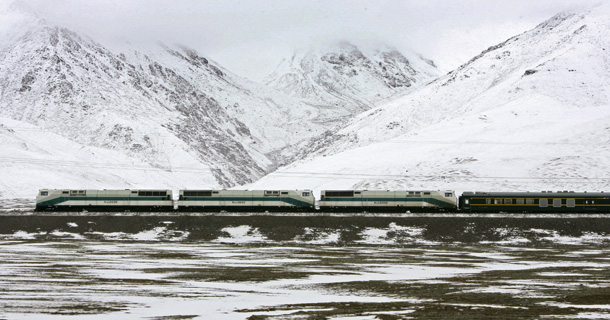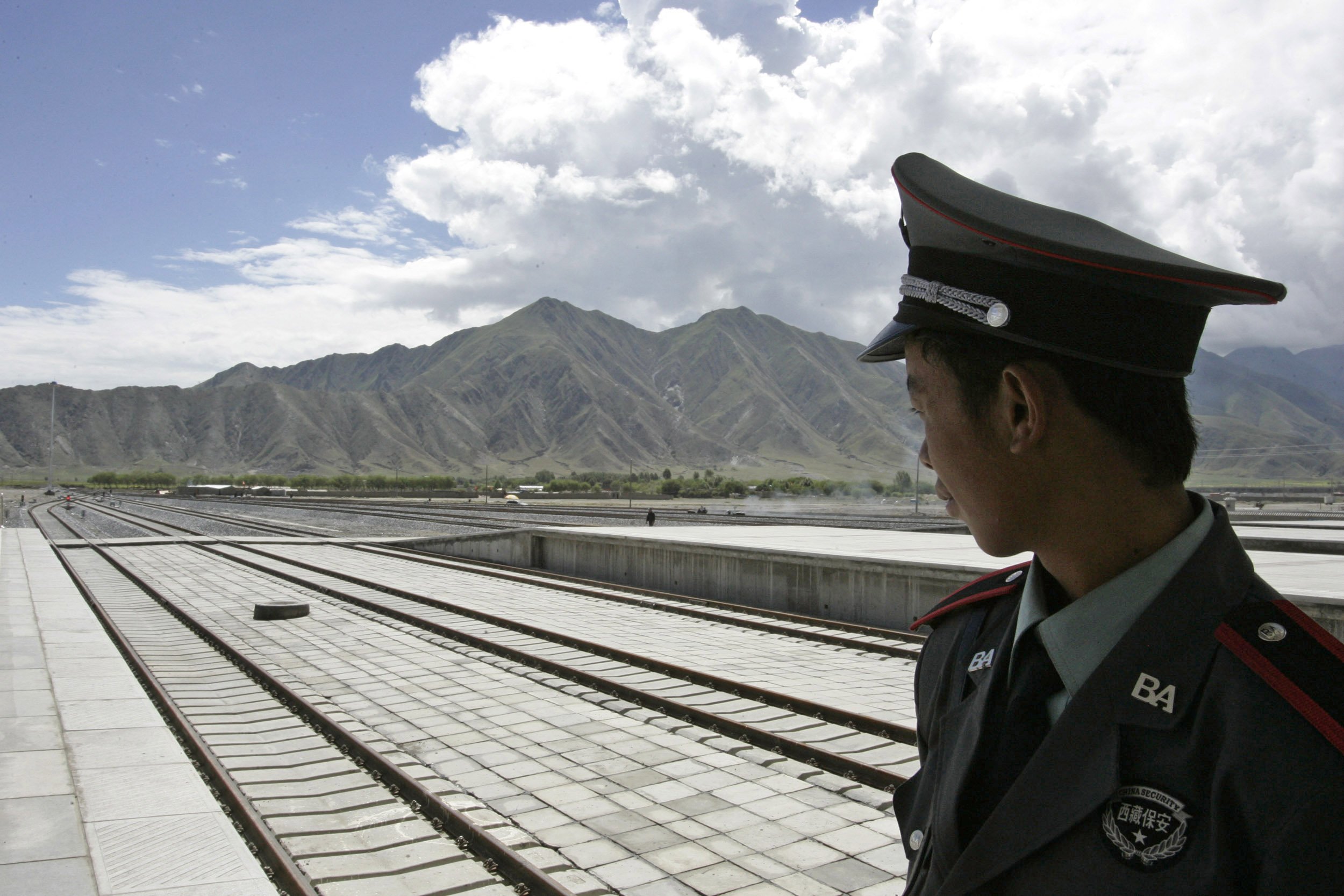China has announced plans to build a new railway linking the Tibetan Capital Lhasa to the southwestern Chinese city of Chengdu. It will be the second Chinese rail link to Lhasa and is part of a five year development plan for the region.
The announcement has been met with protests amid concerns for Tibet’s environment and culture. According to the Washington-based International Campaign for Tibet (ICT), the track will cross “some of the most culturally significant areas,”and the fragile high-altitude landscape is already experiencing global warming nearly three times faster than the rest of the earth.
“It will facilitate further large-scale exploitation of Tibet’s mineral resources as well as enabling greater population migration into Tibet, both seasonal…and permanent settlers,” said Matteo Mecacci, President of ICT.
The first line, which opened in 2006, spurred an influx of long-term Han Chinese migrants and Mecacci spoke of wide spread unease that a second will encourage more to come, destroying the local culture, language and religion.
ICT also expressed alarm that the track will serve strategic and military objectives, saying: “The Lhasa-Nyingtri Railway would provide convenient access for the China’s military in a region with extremely difficult terrain and very limited road access”.
India shares this concernas the railway will enable troops to be deployed near the India-Tibet border. Regular incursions by the Chinese onto Indian soil in Lakdah have resulted in this being a constant cause for disquiet.

A train runs through Qinghai-Tibet Railway beneath the Kunlun Mountain, Qinghai province
Photo:Reuters
China’s Vice Party Secretary of Tibet, Padma Choling, responded to critics by maintaining that, “the ecological environment will not be harmed…The railway will be well built under the condition of environmental protection. That is for sure.” Talking of the suspected military motivations he said: “The border belongs to our motherland, we Tibetans have the responsibility to guard it well.”
The Governor of Tibet, Lobsang Jamcan, highlighted the economic opportunities the track will create. He declared that a second line to the capital will bring higher incomes and better infrastructure to the country, saying: “When built, we’ll see even more economic benefits, even more prosperity”.
China claims the existing rail link brought major increases in both tourism and trade and that the new track will do the same. Last year the 20 million tourists visited Tibet according to official figures, a 29% rise from the previous year.
The Chinese government consistently denies any rights abuses or cultural disrespect in Tibet.





 Print
Print Email
Email